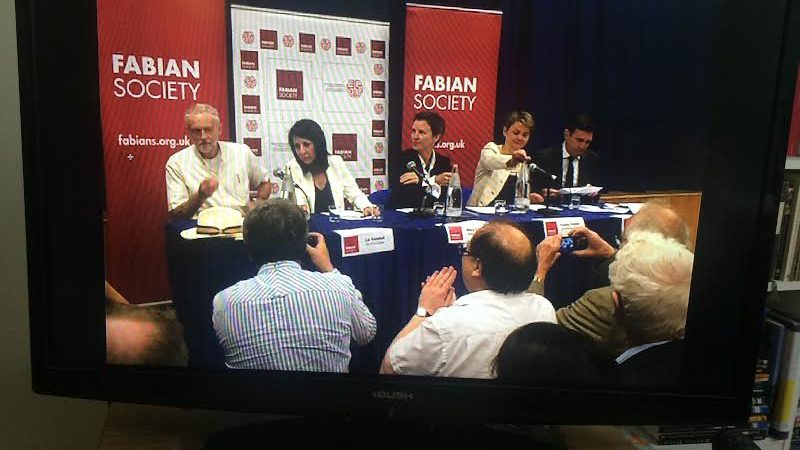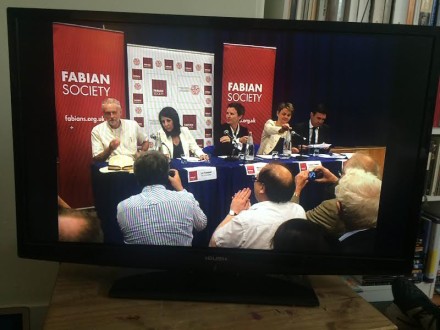

Choose your least irritating sporting metaphor (or cliché): it’s a marathon not a sprint, it’s a game of two halves and we’re barely 15 minutes in, it’s a Grand National and, having cleared the first open ditch, the contenders are beginning to head for Becher’s Brook on the first circuit.
In other words, the campaign to elect a new Labour leader has only just begun. At the same time, we have probably seen enough to have a sense of how the candidates are going to play it. How are they doing so far?
Andy Burnham
Still the front-runner, Andy Burnham has been making an unashamedly emotional appeal to Labour members. The party needs to reconnect with people, he has argued, it has lost touch with traditional Labour supporters, it has seemed remote, there should be a simple appeal to help people get on in life.
He has delivered these lines solidly. But the appearance of solidity was undermined a bit by an interview in yesterday’s Mail on Sunday, in which Burnham came across rather differently. Having boldly stated a few days earlier that the 2015 manifesto was the best he has stood on, in this interview there were several admissions of failure and criticism of Labour’s stance and tone in the run-up to May 7th. The mansion tax had been ill-judged, a view had formed, disastrously, that Labour was anti-success, and the party had lost the art of speaking in plain, intelligible language.
As candidates continue to position themselves to attract support there is bound to be some finessing of lines. But if some of your main claims to be leader are your strength, experience and steadiness under fire it would be unwise to swerve too far from the path you originally set out on.
Yvette Cooper
Few doubt Yvette Cooper’s capability and experience. The main question facing her is whether she has the energy and force of personality to become an effective leader. Unfairly, and ridiculously, until now her public profile has been discussed so often in terms of who she is married to. Because of this perhaps there was bound to be a short time-lag before the media and other observers gave her their undivided attention.
Cooper is accused of playing it safe, being inoffensive, and waiting to come through on the back of other candidates’ second preferences. That would be a pretty risky strategy. A convincing candidate to be leader should have a clear view on the central issues. It should not be, and I think will not be possible to equivocate your way to the leadership. In fairness, Cooper has not played it safe on the question of the deficit, refusing to concede the “spent too much” line as her man rivals have.
But if she really wants to be leader Cooper will have to show the party why this is so, convincingly. Heart and head will have to be deployed.
Liz Kendall
If this were a competition to see who can display the most chutzpah then Liz Kendall would be well out in front. She has been clear and unequivocal where other candidates have hedged. This has led to some unexpected moments – the declaration in Nuneaton that “the whole welfare system is failing”, for example.
She has gone further, warning those attending hustings when she is about to say things that they will not like. Challenging Labour party members is brave. It has certainly been noticed, approvingly, by parts of the media. But there is a risk that this approach will come across as a twist on Tony Blair’s “masochism strategy” of the post Iraq war years – only this time it’s closer to being a “sadism strategy”.
Kendall promotes herself as the candidate the Tory party fears. That claim may or may not be true. But she will not win if she turns out to be the candidate the Labour party fears as well.
Jeremy Corbyn
The presence of Jeremy Corbyn in the leadership campaign has been denounced by some as a sign of the party’s immaturity and essential lack of seriousness about becoming electable again. He can’t possibly win, the critics say, so what on earth is he doing in the race?
But Corbyn’s initial performances in the campaign have made some of the excessive criticism seem unwise. In the first half of the Newsnight Nuneaton debate – staged in front of many uncommitted or potential Labour voters – his answers seemed to win the loudest applause of all. He has spoken calmly and apparently reasonably, and has offered an alternative to the more mainstream views being provided by his fellow leadership candidates. His defence of the poor against further cuts has been an authentically left wing case.
Sure, he can’t and won’t win. But a big Labour tent ought to have room for Jeremy Corbyn as well as the other candidates. He has spoken in clear and principled terms. It would be a much duller campaign without him.
What next?
More jockeying, more tweaking of lines, more attempts (perhaps in vain) to find out where sentiment in the party membership actually lies. Thoughts will turn to how second preferences will be used. There is a long way to go and we have little idea today how this is going to play out.
But the candidate who wins will deserve it.




More from LabourList
‘Tackling poverty should be the legacy of Keir Starmer’s government’
‘The High Court judgment brings more uncertainty for the trans community’
‘There are good and bad businesses. Labour needs to be able to explain the difference’